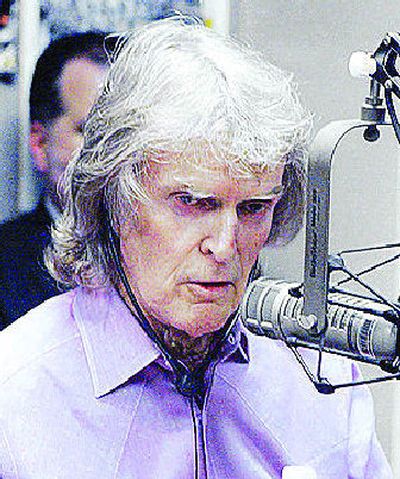The hurt behind the other N-word

For African-American women, hair has been the battleground over definitions of beauty. And when it comes to their hair, no word is more incendiary than “nappy.”
So when radio host Don Imus described members of Rutgers University’s women’s basketball team as “nappy-headed hos,” he not only devalued a talented group of young women. He also stepped into a fray over “good hair” vs. “bad hair” that has gone on for generations in the black community, using a word that little black girls still lob at one another as an insult.
“They used that word on slaves, like we don’t have hair that’s good enough,” says Tina Branch, a hair stylist on Chicago’s South Side. “It’s a word that makes you feel bad, like you don’t look your best.”
Nappy, which is a reference to tightly curled hair, historically has been used to slight African Americans who either could not straighten their hair or refused to wear it straight or in more European styles.
Its negative connotation has been challenged over the years as Afros, dreadlocks and other natural styles celebrated the coarse texture of most African hair. Yet despite popular tote bags, shirts and books that proclaim “Happy to be Nappy,” for some blacks the word implies that you aren’t beautiful unless your hair is straight.
“Nappy can be considered the other n-word sometimes,” says Lanita Jacobs-Huey, an anthropologist and associate professor at the University of Southern California. “When it’s used by someone outside of the community, it can be seen as offensive.”
Add “ho,” and it becomes a particularly traumatic slur, Jacobs-Huey says.
“He (Imus) said ‘nappy-headed,’ making a derogatory comment about hair, and paired it with ‘hos,’ which is a sexual reference,” she says. “It plays to how black women have been sexualized in the media.”
In discussing the previous night’s Rutgers-Tennessee title game in the NCAA women’s basketball tournament, Imus said on the air April 4: “Some rough girls from Rutgers – man, they’ve got tattoos, and …”
“Some hard-core hos,” a sidekick interjected.
“That’s some nappy-headed hos there, I’m gonna tell you that,” Imus replied, adding: “And the girls from Tennessee, they all looked cute, you know.”
Amid increasing protests from African American leaders and advertisers alike, Imus’ radio program has been suspended for two weeks starting Monday, while the MSNBC news network announced it no longer would simulcast the show on cable television.
This isn’t the first time use of the word “nappy” has stirred controversy. In 1998, when a white teacher brought the book “Nappy Hair” to share with her third-grade class, some parents of African American students were livid – even though the book affirmed natural hair.
Larry Parker, a stylist in Chicago’s Hyde Park neighborhood, says the word is still tossed around often, especially in hair salons. But it all depends on who is saying it and what they mean.
“African Americans can say it to each other because we know what it feels like to wear that name or that label,” Parker says. “But others outside our race can’t say it.
“They don’t understand it, they don’t have to live it and they don’t identify with it.
“We shouldn’t have to explain why it’s an insult,” he says. “It’s just not acceptable to say something like that in this day and age.
“In 2007, you should know better.”